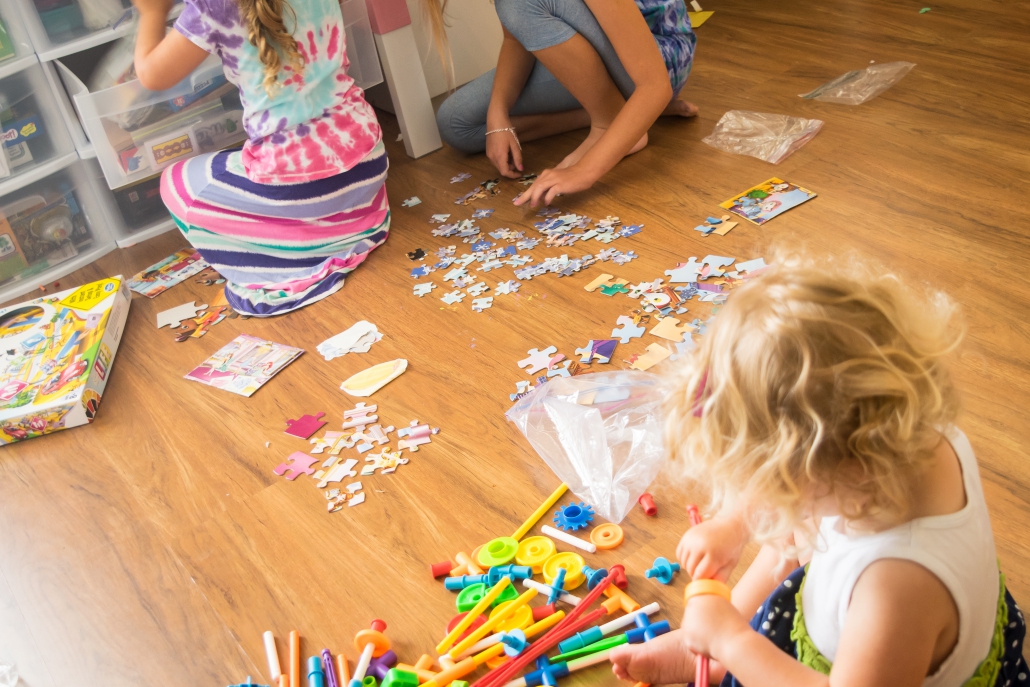How to make speech and language homework fun
by Bethanie Hancox on Dec 6, 2021

Home exercises for speech and language development can be a great way to help your child get the practice they need to improve their communication skills. Not only will they help your child to make progress, but they will also help them to generalise their skills into everyday, meaningful contexts. These activities can also be a lot of fun, which is why it’s great if we can find ways to make them engaging!
A lot of parents can find themselves frustrated when their child refuses to do homework or practice their newly learned skills from their therapy sessions, but it doesn't have to be that way! Using these helpful techniques, you'll be able to get them excited about developing their skills with little, or no resistance.
As a speech and language therapist, I've worked for 6 years engaging children in a range of speech and language therapy tasks. So here are my top tips on how to get your child interested in doing speech and language activities at home.
Include your child in the activity
 Try to get your child involved with activities or jobs at home which you could link to their targets. They’ll enjoy having something to contribute, even if it’s just helping to hand you materials or trying out a new idea from the speech therapist. If they are interested in what you’re doing, they’ll want to do more of it! One idea to develop their vocabulary skills could be when you’re cooking a meal. Ask your child to find something you can stir with such as a spoon or whisk. If supporting your child to follow instructions, get them involved in packing their school bag or lunch box by asking them to carry out a sequence of instructions.
Try to get your child involved with activities or jobs at home which you could link to their targets. They’ll enjoy having something to contribute, even if it’s just helping to hand you materials or trying out a new idea from the speech therapist. If they are interested in what you’re doing, they’ll want to do more of it! One idea to develop their vocabulary skills could be when you’re cooking a meal. Ask your child to find something you can stir with such as a spoon or whisk. If supporting your child to follow instructions, get them involved in packing their school bag or lunch box by asking them to carry out a sequence of instructions.
Use technology for fun speech and language games

Technology can be a useful tool in many situations, especially when it comes to working on homework. As a Mable Therapist, I've learnt how effective using tech can be to engage children during therapy sessions. As 'digital natives, children are often more motivated and engaged if the tasks are presented as computer games. There are some great apps designed just for this purpose, which can make homework time more fun. Speech Blubs have a range of activities within their app to help your child access fun speech and language therapy activities.
Get them active
 Drawing, stacking blocks, and building with Lego can all help to support your child’s speech and language development. Use Lego to develop their turn taking and language skills by modelling vocabulary and phrases such as “your turn”, “one more” etc.
Drawing, stacking blocks, and building with Lego can all help to support your child’s speech and language development. Use Lego to develop their turn taking and language skills by modelling vocabulary and phrases such as “your turn”, “one more” etc.
Get creative

You don’t always have to stick to speech and language materials from the speech therapy session. Try using resources and toys from home that your child loves. Speech and language exercises don’t always have to be written worksheets! Get creative with materials like playdough or shaving foam, painting activities and sensory bins can all be fun speech and language activities that you can do at home.
Set a routine
We all know that children prefer structure, rather than surprise homework sessions. Try setting an alarm on your phone for each day that you practice at home, to make it even easier for your child.
Use speech and language materials that they are familiar with
Be sure to use speech and language activities that your child has previously enjoyed or done well at. They will feel more confident, as they’ve had some success with those activities earlier on!
Reward their effort
Children love being rewarded for a job well-done, so give them some praise for their speech and language work whenever they complete it.
Keep it positive
You want your child to have fun, not feel pressured! If you are pushing them to do speech and language exercises at home, they may lose motivation and be reluctant to continue. Remember that speech and language exercises should be something your child wants to do, rather than something you want them to do.
Set realistic goals when practising
Setting realistic goals is important when practising targets at home. Your speech and language therapist will be able to advise you on what is achievable at home, and how often it should usually be completed. A general rule is to keep sessions short and practice when you can. Research has shown that shorter but more frequent sessions are more effective for retention than longer and less frequent sessions.
Remember that practising is important
Don’t forget why speech and language exercises are important in the first place! By practising at home, your child will make more progress and become more confident within their communication skills.
I hope this post has helped you to better understand fun ways of practising speech and language targets at home. Whether it’s using a therapy app, engaging in daily conversations with your children, or setting up activities based on their interests; there are many ways that parents can support their child's development. You can find further ideas by taking a look at our blog about supporting speech and language skills at home by clicking here.
Let us know if we can be of any help as you work on building your child’s skills by getting in touch.- General mental health (36)
- General Speech & Language (31)
- Primary Schools (25)
- School Issues (25)
- Classroom Behaviour (24)
- Counselling (24)
- Anxiety (22)
- Absenteeism (21)
- Speech and Language Therapy (21)
- SENCOs (19)
- Safeguarding (18)
- Secondary & Sixth Form Schools (17)
- Social Communication (17)
- Funding (15)
- MATs (15)
- Generalised anxiety (14)
- Autism Support (11)
- Language Delay/Disorder (11)
- SEMH (11)
- Relationship Issues (10)
- AAC (7)
- ADHD Support (7)
- Speech Sounds (7)
- Autism (5)
- Hearing Impairment (5)
- Depression (4)
- Selective Mutism (4)
- Anger (3)
- Cleft Lip/Palate (3)
- Downs Syndrome (2)
- Phobias (2)
- Stammering (2)
- Loss (1)
- Self-Harm (1)
- Suicidal Thoughts (1)
You may also like
These related stories

Supporting speech and language development during lockdown

Top tips to help children develop their speech and language at home

